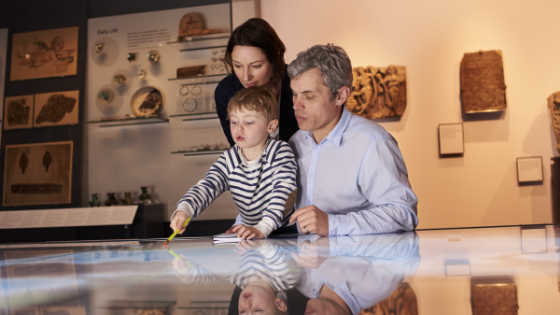6 Ways to Move Your Genealogy Work Forward
 31
31Oct
Are you feeling a little stuck in your genealogy work? We all hit a wall at some point. Jump start your research again with a few of these quick tips to get the ball rolling. Learn about your lineage and yourself as you try some of these fun ways to dive into family history.
Get Your DNA Tested
There are many different labs that can test your DNA and let you know where your roots come from. Learn where your ancestors hail from and how much of their background has made it into your bloodstream. Results can even differ from sibling to sibling. They can also link you to other living relatives you may not have known you had! Getting your DNA results will certainly shed some light on your genealogy work.
Hire a Professional
Professional genealogists are not only trained researchers and historians, but they also may have access to resources that you don’t. They are well versed in research methods, other cultures, and the legitimacy of records. If you’ve hit a wall, take advantage of the expertise of a professional to help you progress. Learn more about when and why to hire a professional here.
Learn How to Better Utilize Google
Google is a must use for any researcher. But there may be a few ways to make it even more useful to you. Try using quotation marks for words that need to appear together. For example, putting quotation marks around a first and last name would search for those two names recorded next to each other. You can also narrow down this search by adding a date—just type DATE..DATE. Instead of just searching “john smith”, trying searching “john smith” 1910..1950 for results specific to those years. If you’d like to search a specific family history site via Google, type ‘site:SITEURL’ and then the term you’d like to search. For example, if you’d like to search for a John Smith on Ancestory.com, you’d type site:ancestory.com “john smith”.
Find Your Living Family Members
Living family is the most important resource when it comes to family history. There may be stories, journals, records, photographs, and more that you haven’t explored. Reach out to other family members that are doing family history as well, compare notes and research. This can be a great way to bond with living relatives as well. If you’re still hitting a dead end, start recording your living family and their stories. This information needs to be recorded and will be invaluable to future generations doing the work that you are doing now.
Attend a Family History Conference
Family history and genealogy conferences are happening in the US all the time. These conferences are full of inspiration, ideas, and others in the same boat that you can collaborate with and learn from. You can learn from professionals, hear inspirational stories, and explore new tools for your research. Talking with others that are working on their family history can be a big help too. Discuss their methods, what’s working for them, what inspires them, learn from pros and peers. Find some of the best conferences to attend here.
Use Printed Resources
Though searching through digital records online is much quicker, they may not have all of the information you need. Use printed resources like newspapers, photos, record transcriptions, and other materials. These resources can often be found at libraries. You may want to visit the Family History Library in Salt Lake—the largest in the world. Another resource for printed records may be your own family.
